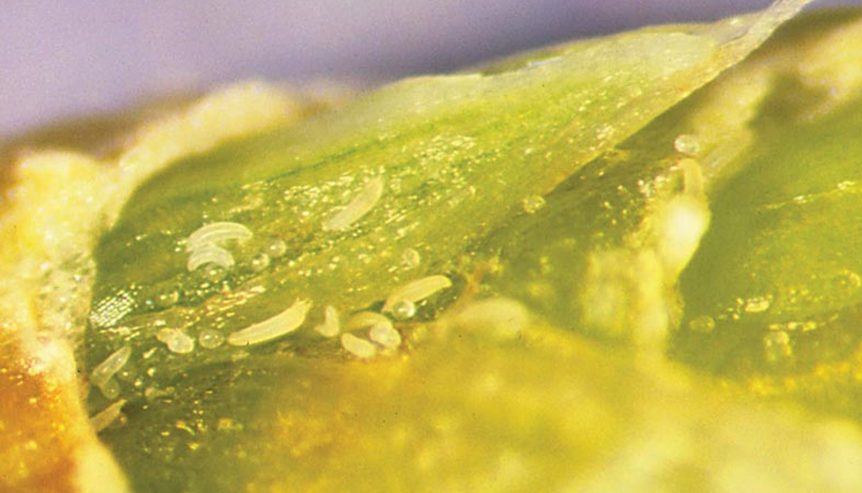COUCH MITES

20 January 2021
This page will help you to identify couch mite and provide some advice on how to easily manage them yourself.
Couchgrass mites are active where ever couchgrass is grown. For the most part, common couchgrass is the most susceptible while the vegetative propagated hybrid couchgrass like Tifway, Tifdwarf, and Tifgreen are usually resistant.
The couchgrass mite is rarely a problem on short cut turf found on golf course greens, tees, and fairways. Symptoms first appear as a weak growing couchgrass turf. The leaves turn a light green and curl abnormally. The internodes shorten, and the tissue swells resulting in the couchgrass becoming tufted so that a clumping pattern becomes evident in the turf stand. These tufts give the appearance of “witches brooms”. Eventually the grass loses its vigor, thins out, and if severe enough, dies.
The mite is extremely small, invisible to the naked eye – only visible under a microscope. Hand lenses usually do not have the magnifying power to make the mite visible.
The mite appears wormlike with two pairs of legs facing forward. The lifecycle of this mite is quite rapid. Under ideal conditions, the mite can complete its life cycle from hatching to an adult in 7 days. Under most summertime conditions, the adults lay eggs every 2 to 5 days with the mite completing its lifecycle in 10 to 14 days. The mites tend to develop between the leaf sheath and blade. This location makes it often difficult to get a chemical spray to the mite.
Culturally, lowering the mowing height will make for a less favorable environment for the mite. Care should be done not to cause scalping. Removing clippings will also help reduce mite populations. Irrigating and fertilising make for a healthier couchgrass turf. Miticides may or may not be effective. If used be sure to apply with adequate water and suitable spray adjuvants.
Short residual insecticides are effective but may need to be applied multiple times. In the United States many managers try to “outgrow” the mite through fertilisation and irrigation.
As always, if you have any more questions please don’t hesitate to contact us for free expert advice on 1800ALLTURF or 07 5543 8304.
NOT SURE WHICH TURF VARIETY TO CHOOSE?
Contact us for expert advice, or come & checkout our lawn display at Tamborine


